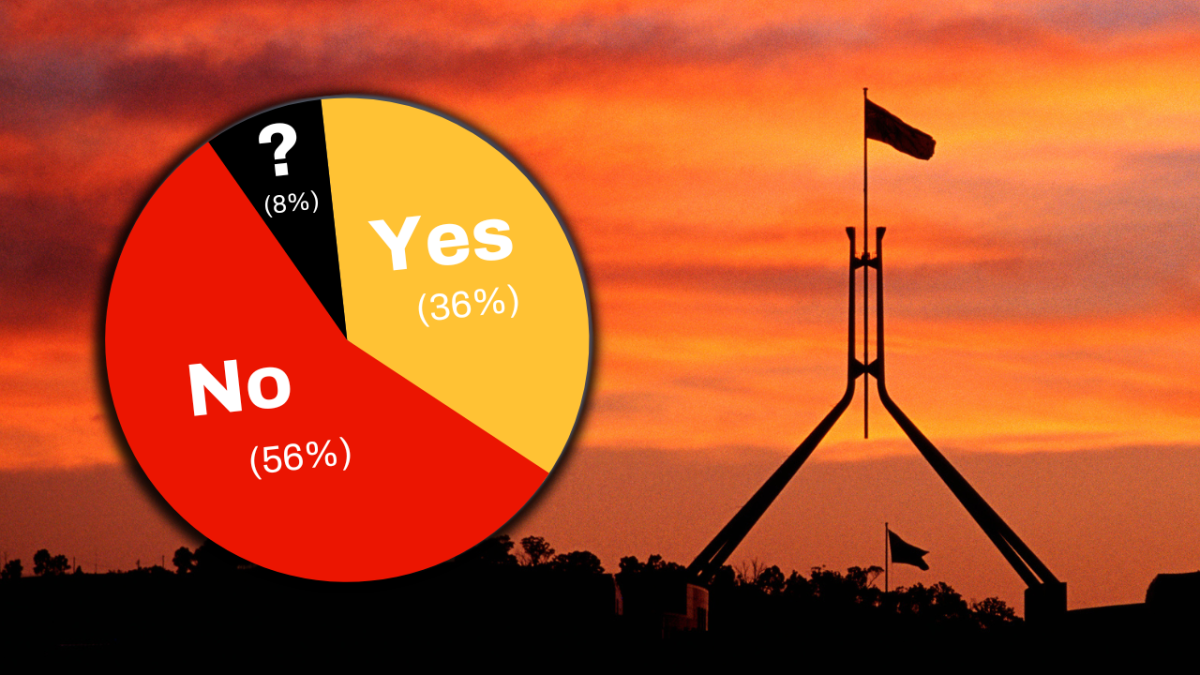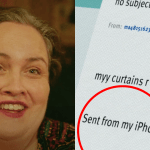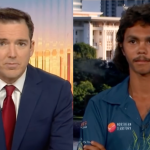
The latest Newspoll has been released, and its current projections on the upcoming Voice referendum paint a grim picture of its chances of success.
According to the latest survey, polls indicate that the Yes Vote has dropped another two points, meanwhile the No side has picked up by three per cent.
Meaning overall support for the Voice is down to 36 per cent, with the opposition jumping to 56 per cent. According to the polls, this is the lowest support for the Voice has ever been.

… but who is even doing these polls? And how reliable are they really?
Are these pieces of data being produced after hours of phone calls to thousands of voters? Are they out in the public asking people in bars what their opinions are?
Or is it some kind of formula where every #VoteYes and #VoteNo used online are mathematically calculated to find an average? Let’s assess.
What is the Newspoll, and how is it done?
The Newspoll that everyone refers to for this data, is the exclusive poll that is published only in The Australian – one of the Murdoch outlets written about here.
There are other polls that exist, such as The Guardian Essential Poll, however it is the Newspoll which most other media outlets run with for stories, especially other outlets within the News Corp family.
Though the Newspoll surveys are conducted by a group called Pyxis Polling & Insights, the questions being asked are decided by The Australian.
The questions are asked in the form of online poll, to people who were “recruited from research panel[s]” according to Pyxis‘ methodology statements.
So while it’s devasting that it’s not just one big Instagram survey, at least they are no longer using the old polling method of cold calling! This led to some skewing of data when experts realised that only certain demographics would do polls this way.
These days they take a sample size of between 1000-1500 people, and typically ask them a series of questions, including:
- If a federal election for the House of Representatives was held today, which one of the following would you vote for?
- Are you satisfied or dissatisfied with the way [Prime Minister] is doing their job as Prime Minister?
- Are you satisfied or dissatisfied with the way [Opposition Leader] is doing their job as Leader of the Opposition?
- If you had to choose, which one of the two leaders do you think would make the better Prime Minister?
In the last few conducted polls, additional questions were asked to around 1200-1300 potential voters regarding the Voice referendum. These questions are:
- On October 14th, Australians will decide at a referendum whether to alter the Australian Constitution to recognise the First Peoples of Australia by establishing an Aboriginal and Torres Strait Islander Voice. Do you approve this proposed alteration?
- While you may change your mind, if you had to choose now, do you approve of this proposed alteration of the Australian Constitution to recognise the First Peoples of Australia by establishing an Aboriginal and Torres Strait Islander Voice?
- Regardless of whether it’s on the day, early voting or postal, how likely is it that you will vote in the referendum?
So that’s how the polls are conducted, but what about their trustworthiness?
Can I trust the Newspoll?
When it comes to representing the data found from the Newspoll, The Australian can still take their editorial liberties in how that information is published.
This has led to some hilariously bad attempts to represent data in accordance with their bias. Like that time they showed they totally know how pie charts work.

But hey, that’s just an average day of trying to damage democracy and ignoring journalistic integrity. Bread and butter for The Australian.
However the question of whether the data itself is trustworthy, is a much bigger question.
The groups conducting the survey are paid to conduct the survey and convert the data into understandable and clear information.
It is their job to run the polls that their clients pay them to run, and though they don’t have control of the data itself, there are always things they can do to make sure their client is happy with the result, such as have a bottle-necked demographic in a key area like age or location.
Of the 1239 people polled in the latest survey, how are we to know that they accurately reflect the entire nation’s values? Critics would argue that is a wildly small sample size to conduct a vibe check of a country with a voting population of 17 million, and then say that the Voice to parliament is going to fail.
Though polls can be as accurate as the professionals conducting them can try for, at the end of the day they aren’t what Australia uses to base voting on.
If you want an accurate vibe check of the country, we’ll get the most accurate poll we can on the evening of October 14th after everybody has their say.



